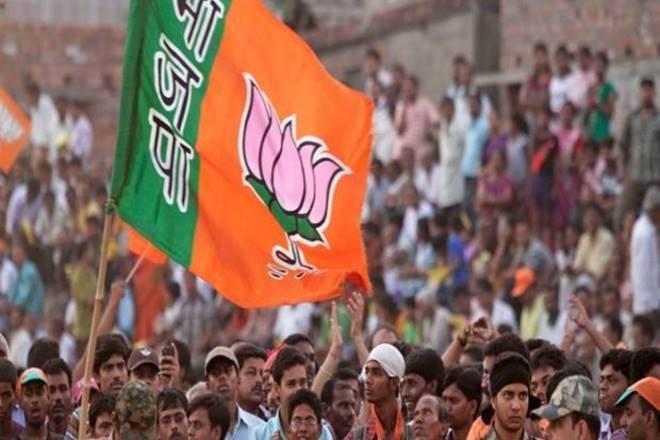Too Much Talk of Taliban, Afghanistan, in Uttar Pradesh? It Must be Election Season

Representational Image. Image Courtesy: The Financial Express
For the last few days, a section of the mainstream media has been questioning Indian Muslims on the pretext of the Taliban takeover in Afghanistan. If the media, particularly TV news, is fueling communal polarisation, it follows that the government lacks confidence in its achievements, and the farmer movement has shaken its confidence.
People suffered heavy losses of life and property during the second wave of the Covid-19 pandemic. Now, they are plagued by rising inflation and unemployment. They do not foresee their sufferings will subside in future. The government and the strategists of the BJP are aware of this ground reality. Ever since farmers announced a campaign in every village of Uttar Pradesh during the elections, the godi media has intensified discussions on every imaginable unnecessary topic. Mostly, it is laying the ground for polarisation politics.
Looking back at the stunts that the TV media has focused on over the last three months makes the picture clear. In the first week of June, a hand pump in Saharanpur, Uttar Pradesh, was turned into a Hindu-Muslim dispute, creating uproars. Then an older man’s beard was chopped in Ghaziabad, followed by talk about a Rohingya infiltration of the state. After this came the arrests of two people, Umar Gautam and Mufti Jahangir Qasmi. This launched a heated debate on conversion. The police claimed there is a vast conversion racket in which 100 people converted about 1,000 others. Yet, who are those people and what came of the investigation? No one knows. Conversion and love jihad are favourite evergreen issues for the godi media, on which they conduct TV debates every three or four days as part of a well-thought-out strategy.
In the first week of July, the Uttar Pradesh Anti-Terrorist Squad caught two alleged terrorists linked to Al Qaeda in Kakori. Soon after, the government released its new draft population policy, which kick-started even louder debates on TV. No doubt, when terrorists or robbers are apprehended, it is the media’s job—and right—to report and analyse them. The problem is that a large section of the media runs a political agenda to polarise voters under the guise of fighting crimes. If any section of society gets targeted due to this, it hurts social unity. At present, the Taliban issue is raging, but about three months ago, it was Palestine.
During the second wave of Covid-19 in May, while there was an outcry over the shortage of oxygen across the country including Uttar Pradesh, Israel carried out major attacks on Palestine on the pretext of targeting Hamas. Many innocent civilians and children died in these attacks. At that time, some Indian TV channels were busy proving that the Palestinians, including unarmed civilians, children, women and journalists, were terrorists and the Israelis are brave fighters. They forgot that in February 2018, Prime Minister Narendra Modi had visited Palestine, where he spoke of further strengthening bilateral ties. Secondly, so far, no Palestinian has been heard saying a word against India. Then why do a section of Indians, especially the media, harbour feelings of hatred towards Palestinians?
This problem is not limited to Muslims and other religious minorities but also reflects the approach towards Dalits, as evident in coverage of the Bhima-Koregaon investigation. Things are so bad that even poor rickshaw-pullers get thrashed to polarise citizens. There was provocative sloganeering at Jantar Mantar in Delhi. The problem for the BJP is that incidents like these have become so common that people no longer pay much attention to them. Changing the names of districts, cities, and towns has also become akin to a routine government program. Of course, the comments of AIMPLB spokesperson Sajjad Nomani and Samajwadi Party Member of Parliament Shafiqur Rahman Burke gave the “debate” on the Taliban more momentum. Yet, the fact is, even if these two had said nothing, the Taliban was bound to get drummed up this election season.
All these issues may seem old, even clichéd, but they are a “toolkit” that enhances the politics of polarisation, even though this strategy has failed in several states. The Delhi and West Bengal Assembly elections are great examples. During the campaign in Delhi, BJP leaders raised all kinds of slogans, such as “Goli Maaro...”. One leader said voters must press the [EVM] button to give the Shaheen Bagh movement a [electric] shock. Still, the public picked the party they preferred—not the BJP. Similarly, the BJP made every effort to polarise the people of West Bengal during this year’s election campaign, but voters ignored it.
The Assembly poll is due in electorally significant Uttar Pradesh, and the credibility of the entire BJP, including Modi and the state Chief Minister Adityanath, is at stake. If the BJP loses this election, and its seats in other states also decrease, then NDA candidates for the presidential election (due in 2022) will struggle to win. It is why the BJP has thrown all its might behind Uttar Pradesh. It is leaving no stone unturned in its social engineering programme as well. Some OBC and Dalit leaders from the state have got ministerial posts at the Centre, and similar preparations are on for the Adityanath Cabinet. There is talk of including Brahmin faces to quench the alleged resentment of this class of voters. A law related to OBC reservation has also been passed. The state has claimed it created four lakh jobs in sectors ranging from television to newspapers to railways and bus stations since 2017. Expensive advertisements sponsored by the Uttar Pradesh government are everywhere, talking about “free ration” and “free vaccines” for people! Intriguingly, the state government is putting up hoardings about itself even outside Uttar Pradesh.
Despite all this, the ground situation does not favour the BJP, and its organisations have to resort to Afghanistan. As for Afghanistan, everybody who believes in democracy, secularism, pluralism, co-existence, and tolerance is concerned about the rise of the Taliban. Judging by its history, nobody is ready to believe that the Taliban is going to change. The world is watching how it treats Afghans in the coming days, especially women and the country’s diverse population, who are bound to resist its rise.
The author is an independent journalist. The views are personal.
Get the latest reports & analysis with people's perspective on Protests, movements & deep analytical videos, discussions of the current affairs in your Telegram app. Subscribe to NewsClick's Telegram channel & get Real-Time updates on stories, as they get published on our website.























